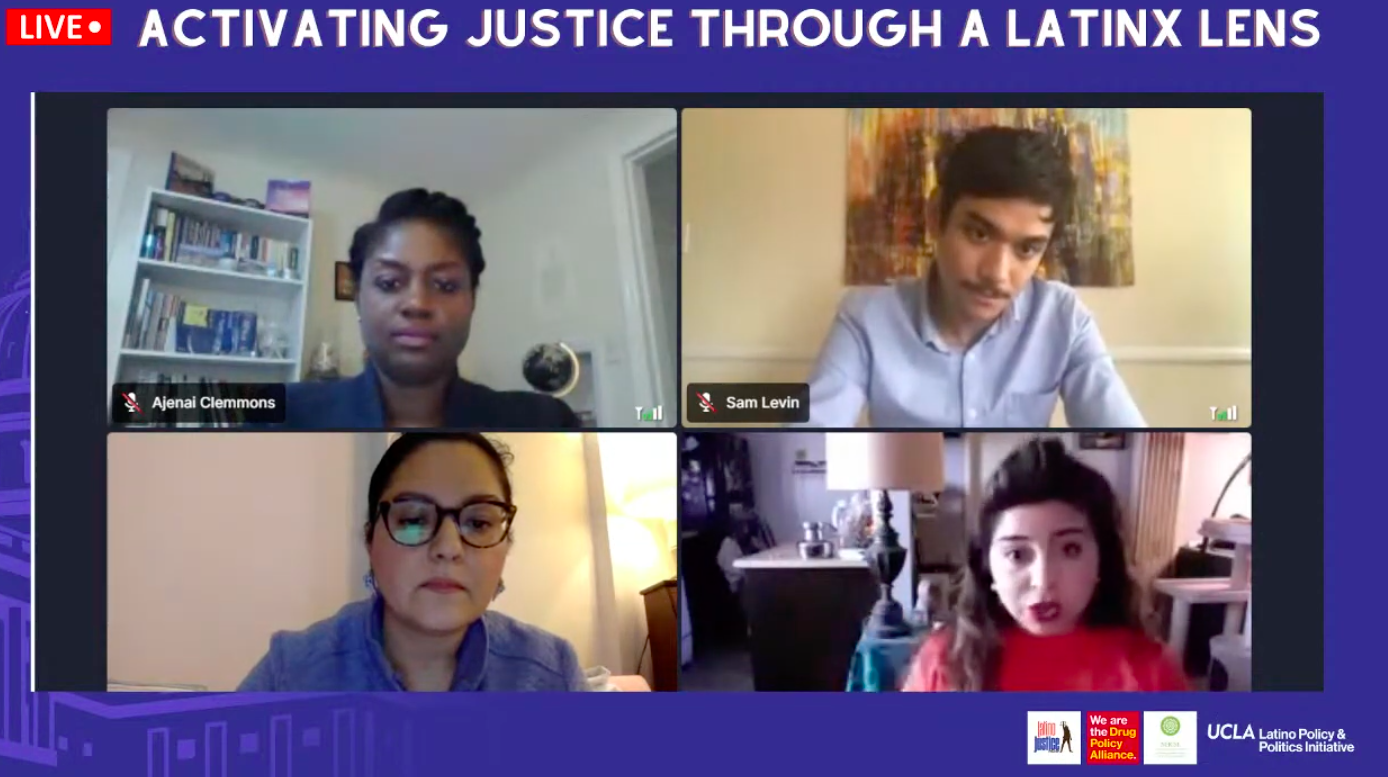George Floyd’s final breaths on May 25, 2020, gasping out “I can’t breathe,” led millions of people in the US and around the world to take to the streets demanding racial justice and police accountability, including defunding and abolition. The Black Lives Matter uprisings that have followed—the result of decades of struggle and organizing by Black and Brown activists—brought unprecedented global momentum and media attention to imagining a world in which bloated police budgets were reallocated to efforts that would actually improve public health.
On May 13, organizers held a virtual panel on police defunding and alternative to incarceration as part of the “Advancing Criminal Justice Reform Through a 21st Century Latinx Lens” convening. Hosted by UCLA Latino Policy and Politics Initiative, LatinoJustice PRLDEF, the Drug Policy Alliance and the National Hispanic Caucus of State Legislators, it brought together advocates, lawmakers and other experts to discuss the intersection between the criminal justice and immigration systems from a Latinx (the term chosen by the convening) perspective.
“The concept of ‘divest and invest’ is not new,” said Ivette Alé, Senior Policy Lead at Dignity & Power NOW and Co-Founder of La Defensa, during the panel. It will “shift funding out of law enforcement and incarceration and into our communities … it’s just not what we want to dismantle. It’s what we want to build.”
The panel explored police funding issues from a Latinx perspective, highlighting the intersectional issues between Latinx, Black and other communities of color with policing and penalization, and laid out what alternatives to policing could look like.
“Our communities have been suffering from economic divestment. Invest in community-based services: housing, medical care.”
In Alé’s city of Los Angeles, at least 925 people have been killed by the police since 2001—almost 80 percent of whom were Black or Latinx. The police are alarmingly ineffective at addressing issues that some civilians assume they are resolving, yet $1 out of every $5 in the local budget goes to the police and sheriff’s department.
Less than 10 percent of a police officer’s time—typically closer to half that—is spent on violent crimes or homicides, even though most homicide cases are not solved. FBI data show that only around 45 percent of violent crimes are “cleared,” meaning a suspect is arrested. Cases involving white murder victims are much more likely to be cleared than those in which the victims are Brown or Black.
The panel speakers discussed how police officers spend most of their time responding to low-level incidents, like nonviolent crimes and mental health crises. Evidence has shown these situations are better handled by first responders, social workers or trained community members, who help where police are likely to harm.
“Take money out of these systems of harm,” Alé said. “Our communities have been suffering from economic divestment. Invest in community-based services: housing, medical care.”
“What we’ve seen with progressive victories is an intense policy backlashes at a state level.”
Police officers cost local governments additional millions through lawsuits and payouts for settling court cases from killing civilians on the job—further economic divestment from local communities, especially communities that are already marginalized.
“It’s in the billions. Chicago alone has spent $400 million in payouts,” said Ajenai Clemmons of the Sanford School of Public Policy at Duke University.
Speaking to the audience, Clemmons highlighted case studies of effective, community-based solutions that are reducing investment in police and homicide rates. These programs, like the Violence Interrupters Model in Chicago, Illinois, and the Peacemaker Fellowship in Richmond, California, help proactively identify what could potentially escalate to issues like firearm violence by working directly with community members and making connections to needed services, like job training or substance use treatment. In Richmond’s case, this included financial incentives to not use guns.
The result has been double-digit reduction in crime and firearm violence, including homicide. But in order for these sorts of programs to produce tangible outcomes, they must be given ongoing support. “What we’ve seen with progressive victories is an intense policy backlashes at a state level,” Clemmons said.
In many cases, elected representatives will verbalize support for police defunding and yet little will actually change. And piecemeal solutions can sometimes be even more harmful. Priscilla Smith, campaigns director at Mijente, noted how increases in body cameras and surveillance methods can be used to criminalize and target especially Black, Asian and Muslim communities.
“Keep doing the deep work of engaging community members, educating, and continuing to lift up and inspire a vision for a just society that starts with a reallocation of resources that centers our humanity,” she said.
DPA previously provided a restricted grant to The Influence Foundation, which operates Filter, to support a Drug War Journalism Diversity Fellowship.
Screenshot of panel by Umme Hoque. Top right: Ajenai Clemmons of the Sanford School of Public Policy at Duke University; top left: panel moderator Sam Levin of The Guardian; bottom left: Priscilla Smith of Mijente, bottom right: Ivette Alé of Dignity & Power NOW and La Defensa




